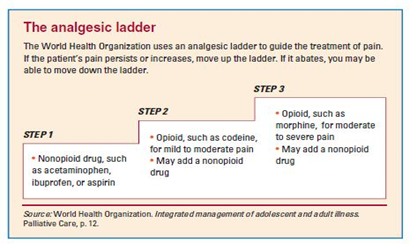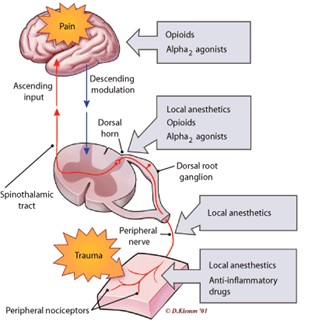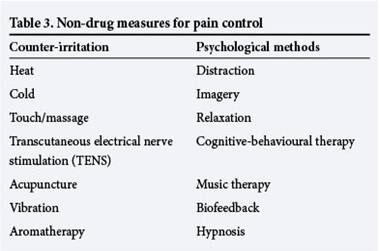- Effective postoperative pain control is an essential component of patient care after surgeries.
- The GOALS of perioperative pain management are: to relieve suffering, achieve early mobilization after surgery, reduce length of hospital stay, and achieve patient satisfaction.
- The ADVANTAGES of effective postoperative pain management include patient comfort and therefore satisfaction, earlier mobilization, fewer pulmonary and cardiac complications, a reduced risk of deep vein thrombosis, faster recovery with less likelihood of the development of neuropathic pain, and reduced cost of care.
Traditional Methods in Acute Pain Management
Current therapeutic strategies are largely dependent on ‘’Non-steroidal Anti-inflammatory Drugs’’ (NSAIDs) & Opioids (morphine or pethidine) that is to say: a Single Drug Policy!!
- Mild Pain: PARACETAMOL (orally or intravenously)
- Moderate Pain: NSAIDs (diclofenac, ibuprofen, ….)
- Severe Pain: OPIOIDs (tramadol, pethidine, morphine)

- Pain should be treated as the “ 5th VITAL SIGN ”. Patients should be assessed for pain every time Temperature, BP, Pulse, and Respiration are measured. Pain should be recorded during movement, or deep Inspiration, NOT only just at rest.
- A better approach uses several agents, each acting at different sites of the pain pathway, and is known as ‘’ MULTIMODAL ANALGESIA ’’. It is the SIMULTANEOUS use of Wide Spectrum Analgesic Medications to reach an optimum pain relief. This is done by approaching the Pain Pathway at DIFFERENT LEVELS. Analgesia can be effectively obtained by using LOW-DOSES of drugs; thereby, reducing their side-effects.
- ‘’ PREVENTIVE ANALGESIA ’’ by initiating an analgesic regimen before the onset of the painful stimulus; to prevent brain sensitization to pain hence limiting the subsequent pain experience.
- ‘’ NON-PHARMACOLOGICAL PAIN RELIEF METHODS ‘’


